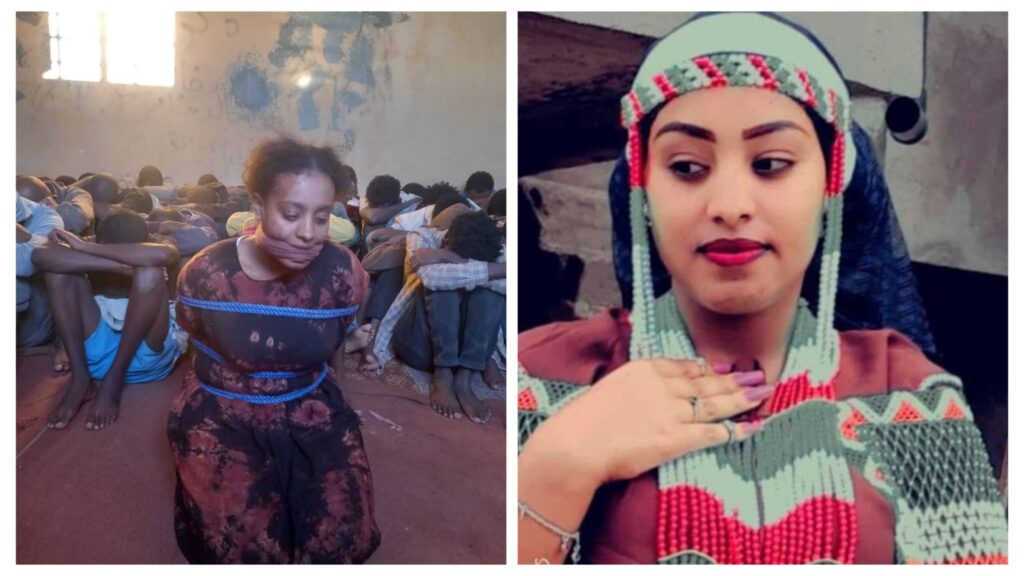Information reaching Kossyderrickent has it that Naima Jamal gets kidnapped as she’s beaten with a stick while being held in captive for $6K in Kufra, Libya.

Naima Jamal, a 20-year-old Ethiopian woman from Oromia, was abducted shortly after her arrival in Libya in May 2024. Since then, her family has been subjected to enormous demands from human traffickers, their calls laden with threats and cruelty, their ransom demands rise and shift with each passing week. The latest demand: $6,000 for her release. READ MORE HERE
This morning, the traffickers sent a video of Naima being tortured. The footage, which her family received with horror, shows the unimaginable brutality of Libya’s trafficking networks. Naima is not alone. In another image sent alongside the video, over 50 other victims can be seen, their bodies and spirits shackled, awaiting to be auctioned like commodities in a market that has no place in humanity but thrives in Libya, a nation where the echoes of its ancient slave trade still roar loud and unbroken.
VIDEO HERE
“This is the reality of Libya today,” writes activist and survivor David Yambio in response to this atrocity. “It is not enough to call it chaotic or lawless; that would be too kind. Libya is a machine built to grind Black bodies into dust. The auctions today carry the same cold calculations as those centuries ago: a man reduced to the strength of his arms, a woman to the curve of her back, a child to the potential of their years.”
Naima’s present situation is one of many. Libya has become a graveyard for Black migrants, a place where the dehumanization of Blackness is neither hidden nor condemned. Traffickers operate openly, fueled by impunity and the complicity of systems that turn a blind eye to this horror. And the world, Yambio reminds us, looks the other way:
“Libya is Europe’s shadow, the unspoken truth of its migration policy—a hell constructed by Arab racism and fueled by European indifference. They call it border control, but it is cruelty dressed in bureaucracy.”
The $6,000 ransom demanded for Naima is not just a price for her life; it is a price for the silence of a global community that allows this horror to happen to the black child. And yet, for many, this is not survival, it is a cycle of endless suffering.
Naima’s fate, and that of the 50 other victims in Kufra, remains uncertain. Their cries are met with indifference by those who could intervene but choose not to. Meanwhile, their families are left to battle with the impossible, raising the funds demanded by traffickers or risking the loss of their loved ones forever.
The world must confront the uncomfortable truth: the slave trade is alive and thriving in Libya. It thrives in the silence of nations, in the shadows of complicit systems, and in the unchecked racism that dehumanizes Black lives. Naima’s story, as Yambio writes, is not an anomaly, it is the legacy of a history that refuses to end.
Discover more from KossyDerrickent
Subscribe to get the latest posts sent to your email.









How do we a civilians begin to help?
By resharing on social media